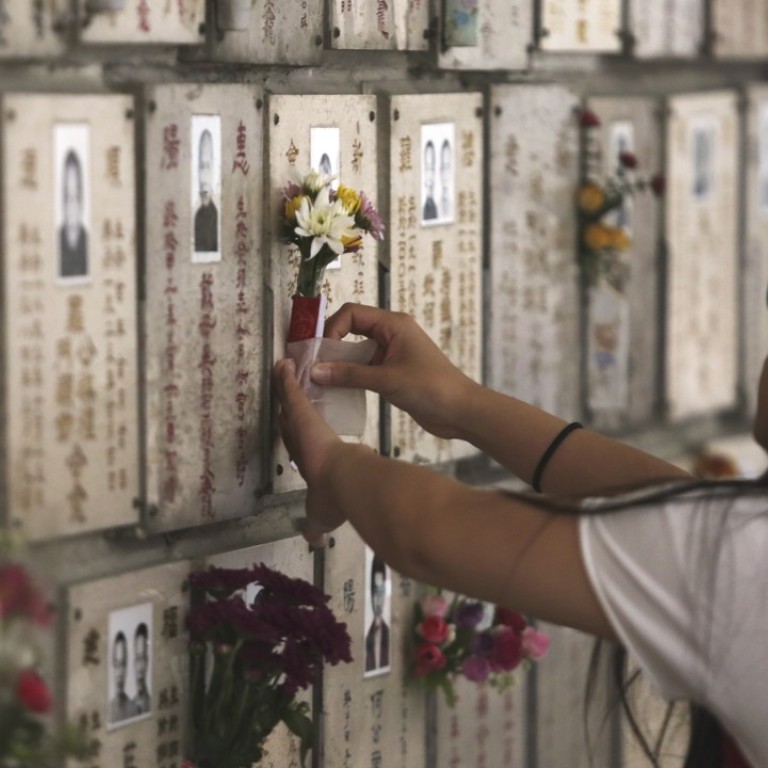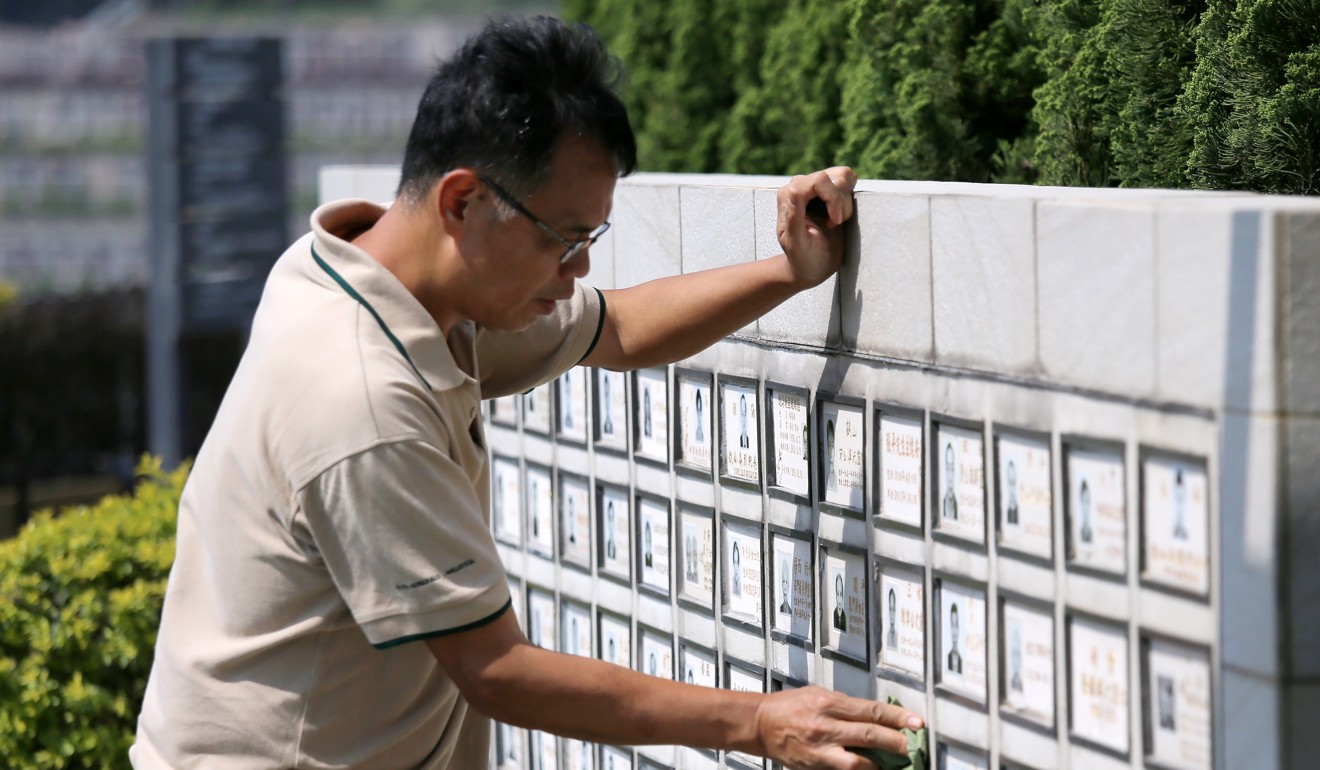
New licensing law poses challenge for Hong Kong’s columbarium operators
The new bill will only exacerbate the shortage of columbaria in Hong Kong unless the government adopts a pragmatic approach
The recent enactment of the Private Columbaria Ordinance will bring wholesale changes to a traditional business which has not been properly regulated in the past hundred years.
Under the new law, which came into effect on June 30 to enhance consumer protection, all private columbarium operators have to obtain a licence or a waiver from the government to sell or let out new niches.
Columbaria are structures divided into niches for people to store urns containing the ashes of their deceased loved ones.
Setting aside the possibly lengthy application process, the land premium required is likely to drive most operators out of business
The changes to the procedures to operate a legitimate columbarium cannot be easily understood by laymen. The ordinance is over 350 pages long and comprises 11 parts, covering topics ranging from the licensing procedures and requirements, rules on the operation of columbaria, to enforcement against non-compliance and restrictions on ash disposal.
One of the key prerequisites for obtaining a licence under the new regime is to meet land and town planning requirements. Operators may need to change their land use to columbarium development. Currently, there are 122 columbaria which do not comply with land or planning-related terms, with a large majority of these operating on land leases which do not explicitly allow columbarium use.
Setting aside the possibly lengthy application process, the land premium required is likely to drive most operators out of business. Taking a columbarium with 1,000 niches as an example, the owner may need to pay an overall land premium of HK$50 million if the government asks for a premium of HK$50,000 per niche. It has to be paid to the government up front before the operator can sell the niches.

The authority should consider permitting payment of such premiums by instalments, or allowing columbarium operators a choice of applying for lease modification of niches in batches instead of seeking a one-off approval and paying the premium in one go.
This would enable operators to apply and pay the premium in smaller batches, say not less than 250 niches per application for example, so that the approved niches can be sold in response to market demand. This would mitigate the burden on operators’ cash flow.
The authority should consider permitting payment of such premiums by instalments
There is no straightforward solution to help solve the problem. This proposal of allowing land premium to be paid in batches and letting a smaller quantity of niches go on sales would require coordination in town planning and licensing matters. For instance, the planning department would have to allow the existence of the unsold niches, and the Private Columbaria Licensing Board would have to issue a code of practice about granting licences to an entire columbarium but restricting the sales of niches to only those which have paid their land premium or met the land-related requirements.
The government has offered a nine-month grace period upon enactment of the new legislation, and about 80 per cent of the private columbaria are at risk of closure by March 2018. The grace period is nowhere near enough for the columbaria to seek ways to regularise their business. There could be as many as 385,000 niches on the verge of being displaced, and the handling of these niches would be chaotic and the scattering of interred ashes might be impractical.
Abandonment of a columbarium is illegal, and offenders can face a maximum penalty of a HK$5 million fine and imprisonment for seven years
It is important to note that abandonment of a columbarium is illegal, and offenders can face a maximum penalty of a HK$5 million fine and imprisonment for seven years.
The authority must work together with stakeholders to facilitate the survival of columbarium businesses and safeguard the sanctity of the interred ashes.
The government should look closely into the potentially problematic areas arising from the new regulations so that the shortage of columbaria can be better resolved. It should explore the suggestions made during the public consultation on the licensing scheme and adopt a pragmatic approach to safeguard consumer interests, ensure fire and building safety and educate the public that any inconvenience brought to the affected neighbourhood is likely to be confined to a couple of weeks every year.
Otherwise, the new bill will only compound the problem.
Alnwick Chan is executive director of Knight Frank

